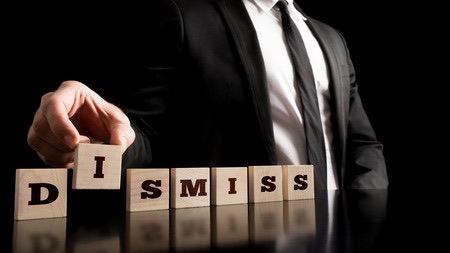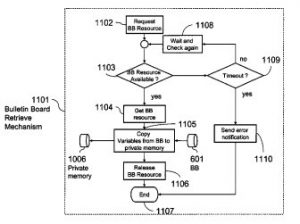 On Tuesday, May 30th, online legal news outlet Law360 reported that a trio of major automakers filed a motion asking a federal judge in the U.S. District Court for the Eastern District of Texas (E.D. Tex.) to toss a patent infringement suit filed last May by Longview, TX-based patent licensing firm Stragent LLC. Reportedly, the automaker defendants argue that the U.S. Supreme Court’s recent decision in TC Heartland v. Kraft Foods Group forecloses the case from being decided in E.D. Tex.
On Tuesday, May 30th, online legal news outlet Law360 reported that a trio of major automakers filed a motion asking a federal judge in the U.S. District Court for the Eastern District of Texas (E.D. Tex.) to toss a patent infringement suit filed last May by Longview, TX-based patent licensing firm Stragent LLC. Reportedly, the automaker defendants argue that the U.S. Supreme Court’s recent decision in TC Heartland v. Kraft Foods Group forecloses the case from being decided in E.D. Tex.
The defendants seeking the dismissal of Stragent’s infringement suit from E.D. Tex. include the North American subsidiaries of German automakers BMW (ETR:BMW) and Mercedes-Benz as well as Swiss automaker Volvo (STO:VOLV-B). The three entities reportedly argue that they do not have any regular place of business or are headquartered within the jurisdiction of E.D. Tex. “The Supreme Court decision is relevant to defendants’ motion because the circumstances warranting dismissal in that action are substantially similar to this case,” the motion reads, according to Law360’s coverage.
Stragent’s suit alleges that the automakers infringed upon a pair of patents covering technologies for updating in-vehicle software:
 U.S. Patent No. 8209705, titled System, Method and Computer Program Product for Sharing Information in a Distributed Framework. It protects a method for sharing information in real-time across a distributed control and monitoring system for the electronic communication of certain temporal behaviors of vehicle systems.
U.S. Patent No. 8209705, titled System, Method and Computer Program Product for Sharing Information in a Distributed Framework. It protects a method for sharing information in real-time across a distributed control and monitoring system for the electronic communication of certain temporal behaviors of vehicle systems. - U.S. Patent No. 8566843, same title as ‘705 patent. It claims a non-transitory computer-readable medium storing a computer program product with code for sharing information in a distributed system, storing that information on a bulletin board and issuing notifications based on the state of the information stored on the bulletin board.
In Stragent’s lawsuit against BMW, the patent licensing firm alleged that BMW’s incorporation of automotive open system architecture (AUTOSAR) into electronic modules installed into the company’s vehicles is the activity infringing upon the ‘705 and ‘843 patents.
The Stragent case is not the only suit filed in E.D. Tex. which is already seeing some impact from SCOTUS’ decision in TC Heartland. Also on May 30th, Law360 reported that a similar motion was filed by Sunnyvale, CA-based networking equipment firm Juniper Networks (NYSE:JNPR) seeking to dismiss an infringement suit brought by Florida-based tech licensing firm Blue Spike LLC. About a week before Juniper’s filed motion, Blue Spike amended its claim to assert 14 patents, 12 fewer than the 26 which were originally asserted, a total which reportedly made that suit the largest infringement suit in terms of asserted patents in U.S. history.
__________
For more on the Supreme Court’s decision in TC Heartland please see:

![[IPWatchdog Logo]](https://ipwatchdog.com/wp-content/themes/IPWatchdog%20-%202023/assets/images/temp/logo-small@2x.png)

![[Advertisement]](https://ipwatchdog.com/wp-content/uploads/2024/04/Patent-Litigation-Masters-2024-sidebar-early-bird-ends-Apr-21-last-chance-700x500-1.jpg)

![[Advertisement]](https://ipwatchdog.com/wp-content/uploads/2021/12/WEBINAR-336-x-280-px.png)
![[Advertisement]](https://ipwatchdog.com/wp-content/uploads/2021/12/2021-Patent-Practice-on-Demand-recorded-Feb-2021-336-x-280.jpg)
![[Advertisement]](https://ipwatchdog.com/wp-content/uploads/2021/12/Ad-4-The-Invent-Patent-System™.png)







Join the Discussion
One comment so far.
Edward Heller
June 2, 2017 04:59 pmInteresting.
Right away we are going to test venue for foreign corporations that do not reside in the US.
The general venue statutes says this:
“1391(c)(3) a defendant not resident in the United States may be sued in any judicial district….”
The Supreme Court said this about a prior venue statute and aliens,
“We conclude that in § 1391 (d) Congress was stating a principle of broad and overriding application, and not merely making an adjustment in the general venue statute, as this Court found Congress had done in Stonite and Fourco. The principle of § 1391 (d) cannot be confined in its application to cases that would otherwise fall under the general venue statutes. For § 1391 (d) is properly regarded, not as a venue restriction at all, but rather as a declaration of the long-established rule that suits against aliens are wholly outside the operation of all the federal venue laws, general and special.
That rule, which has prevailed throughout the history of the federal courts, controls this case. Since respondent Brunette is an alien corporation, it cannot rely on § 1400 (b) as a shield against suit in the District of Oregon. The judgment of the Court of Appeals is Affirmed.”
Brunette Machine Works, Ltd. v. Kockum Industries, Inc., 406 U.S. 706, 714 (1972).
The problems is that 1391(d) no longer exists. Aliens are addressed in the general venue statute.